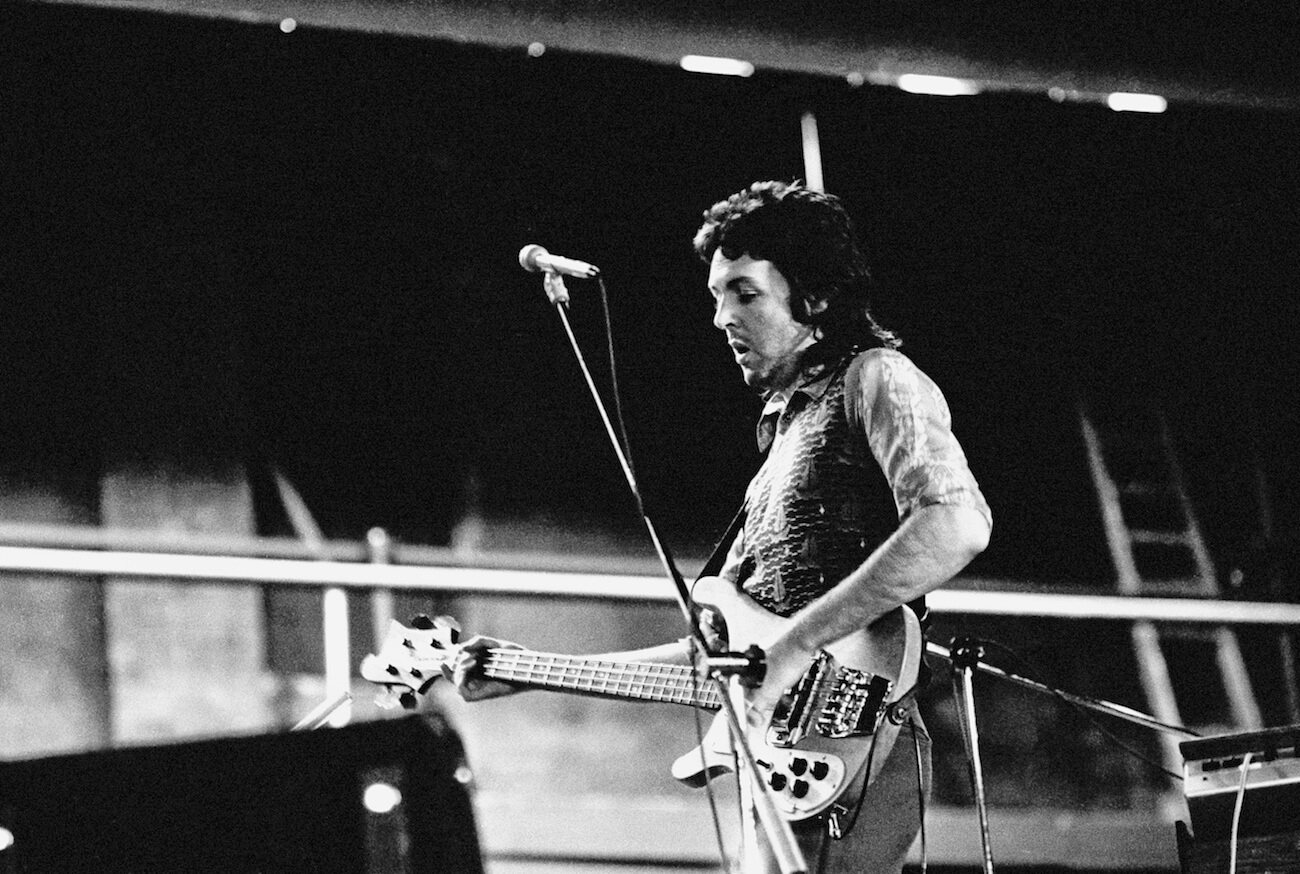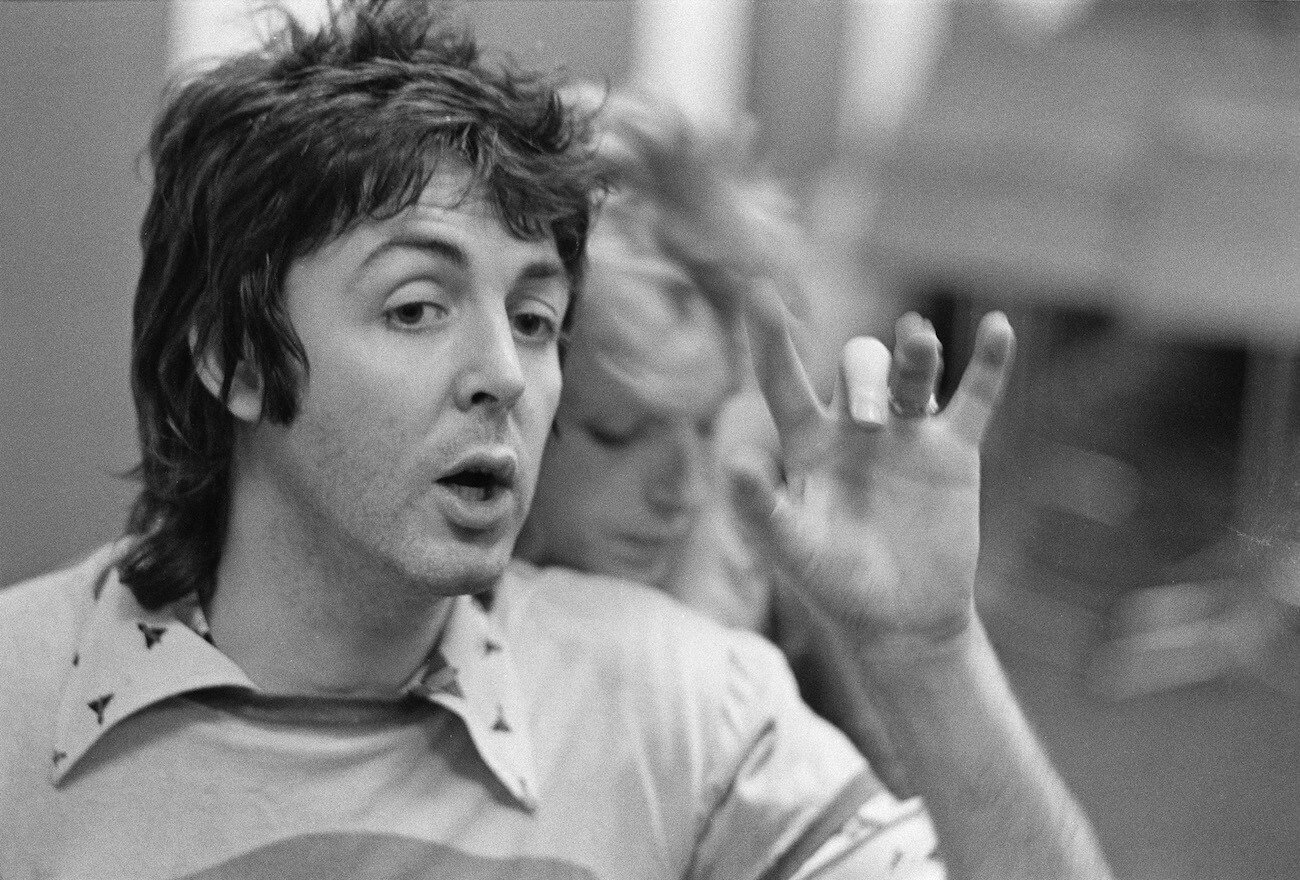
Paul McCartney’s Uncomfortableness With Fame and Wealth Is Reflected in His Song ‘Mrs. Vanderbilt’
It’s been years since Paul McCartney‘s fame skyrocketed with the rest of The Beatles. However, that doesn’t mean he’s comfortable with it all these years later. His uncomfortableness with fame and wealth is reflected in his song “Mrs. Vanderbilt.”

Many people asked The Beatles if they were worried about joining the Establishment
In his book, The Lyrics: 1956 to the Present, Paul wrote that in The Beatles’ early days, people used to ask them whether they were worried that they might have joined the Establishment. The Beatles were still new to fame and thought the Establishment was a club in London, which it was.
Paul wrote that The Beatles didn’t know what it all meant, except that they were now part of the status quo. Still, they insisted they weren’t part of anything posh. They knew a few posh people, but that was it. To the band, posh people were Rockefeller, Getty, and Vanderbilt.
The Beatles didn’t have any concept of money when they first started, which was a bad thing. They made deals with the wrong people because they were naive, which had serious consequences.
Later, Paul realized fame wasn’t all it was cracked up to be.
Paul McCartney thinks being rich can often be bothersome, and that’s reflected in ‘Mrs. Vanderbilt’
In The Lyrics, Paul wrote that the problem with being rich is that “what comes with it is often quite bothersome.” For instance, he has a little sailboat to sail himself. However, people often remind him that it’s just a kid’s boat. He always says, “Okay, I’m a kid.”
He doesn’t know if they’ll ever understand that he doesn’t want a bigger boat, an adult boat. If he gets a bigger boat, he’ll need a crew, and he doesn’t want one.
In the song, the main character has the same issue. The problem with getting involved with Mrs. Vanderbilt is that it comes with many societal rules. “I’ve got to invite for cocktails all these people whom I don’t like,” Paul wrote. “I’m the kind of person who’ll go to Mrs. Vandebilt’s cocktail party – once.
“That’s the way I’ve led my life. I like this idea of the alternative being the norm and then dipping into, or playing with, this other world that I don’t really want and to which I’lI never quite belong. ‘Down in the jungle, living in a tent / You don’t use money, you don’t pay rent’ is a riff on a song by the British comedian Charlie Chester, who was a mainstay of radio when I was a kid. It’s also a worldview that I find very attractive. Hippiedom. Dropping out.”
Paul just wants peace and privacy, not Mrs. Vanderbilt or her “ilk to intrude.” The former Beatle added, “She’s going to spoil it for me. She’s going to make me obey rules that I don’t want to obey. She’s going to pull me up into her cloud of money and influence and authority, and I would rather be spending my time with the Eleanor Rigbys of the world.”
Paul McCartney morphed Mrs. Vanderbilt into Mrs. Washington to represent the ‘political capital of America’
At the song’s end, the former Beatle morphed his antagonist into another figure. Paul turned Mrs. Vanderbilt into Mrs. Washington, who “represents the political capital of America. So the phrase “I’ve got plenty of time of my own” turns into “I’ve done plenty of time on my own.”
Paul concluded, “In short, Mrs. Vandebilt is a figure of authority and wealth and rules and money that the protagonist of the song doesn’t want to know about. He wants to be left alone. And that’s me, very much who I am. I’m never happier than when I’m in the middle of the woods, on a horse, making a trail. Any chance I have, I like to be out on my own in the woods.”
That is very clearly stated many times throughout The Lyrics. Paul loves simple things like nature and making tables (yes, tables). He might seem frugal with his wealth, but he’s quite humble.


